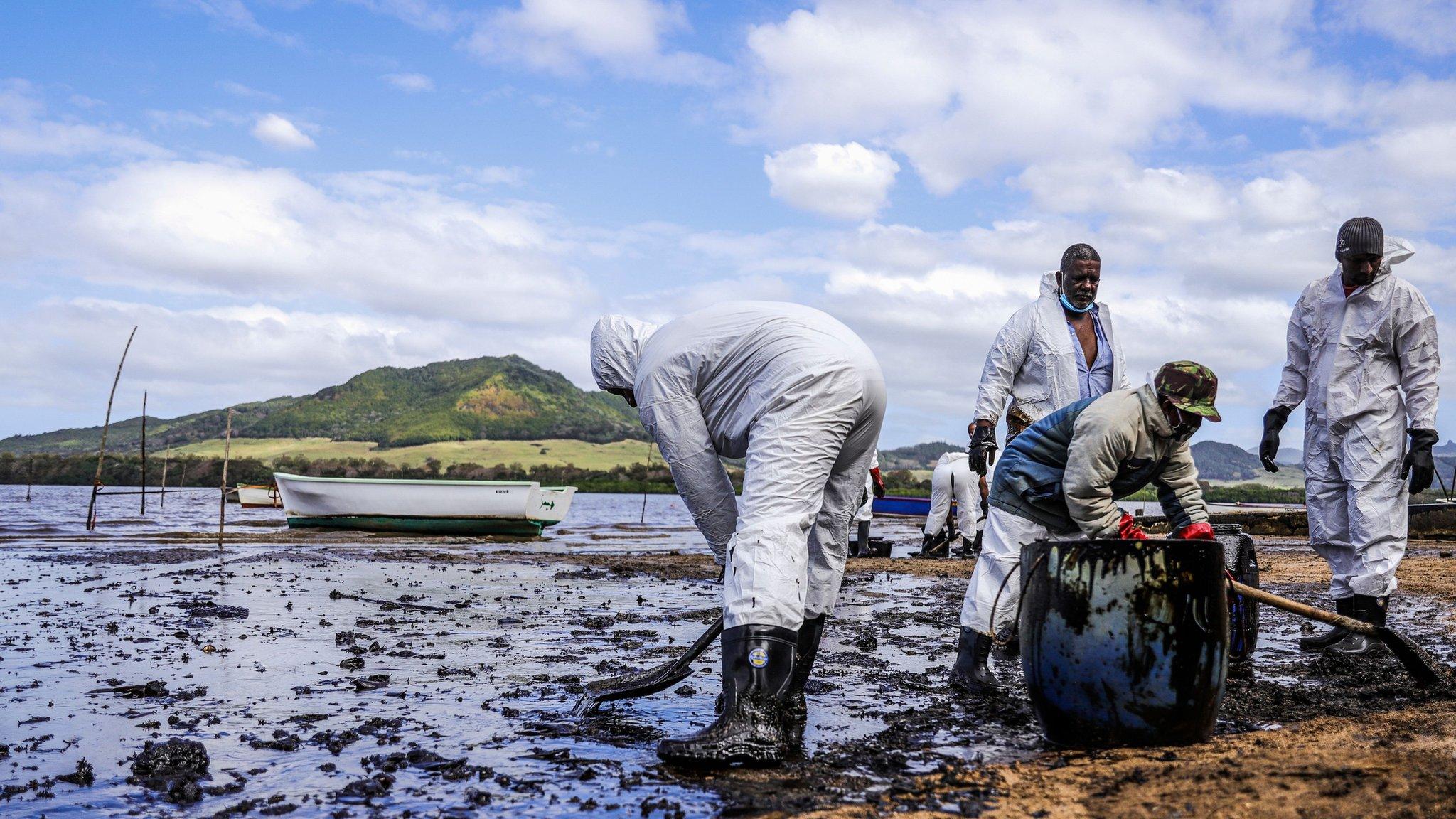X-Press Pearl: What's happening with the clean up in Sri Lanka?
- Published
- comments
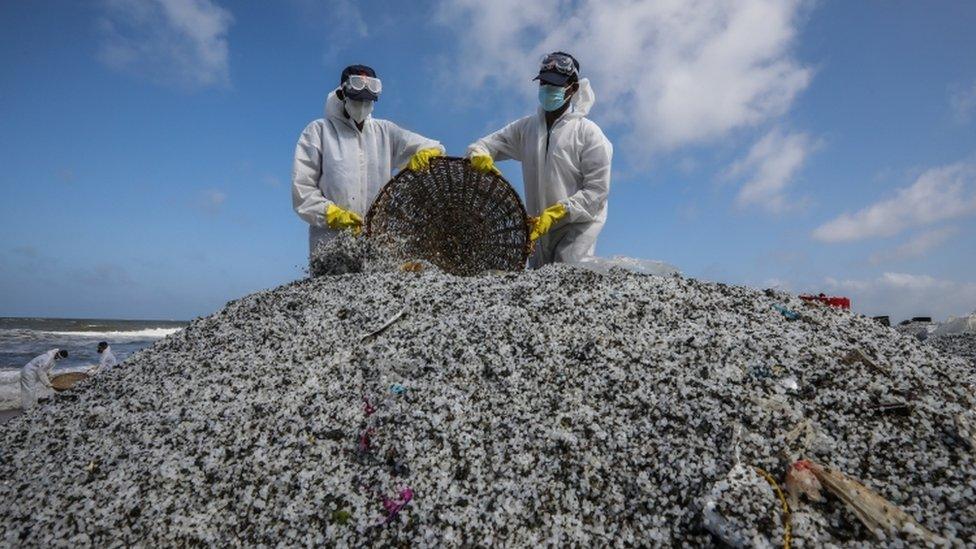
The Sri Lanka Navy has been involved in the big beach clean up
Coastal clean ups are being carried out in Sri Lanka after a cargo ship carrying huge amounts of oil and chemicals caught fire off the coast of the country earlier this month.
Although the fire has been put out, some of the chemicals which were onboard the X-Press Pearl ship have leaked into the water, along with tiny plastic pellets which have washed up on nearby beaches.
Half of the ship has now sunk to the seabed and there are still containers on the remainder of the wrecked ship containing chemicals which could potentially be very dangerous to the environment.
What's happening?
The Sri Lanka Prime Minister Mahinda Rajapaksa called for cleaning work to take place along a long stretch of the affected coastline.
It's reported to have led to the removal of over 580 tonnes of plastic found along the coast which had been on the ship.
Sri Lanka's Marine Environment Protection Authority, the Coast Conservation Department, the Sri Lanka Navy and the Sri Lanka Air Force are have all been involved in the big beach clean up and large bags of collected plastic pellets have been filled and lined up along the coast.
Oil spills
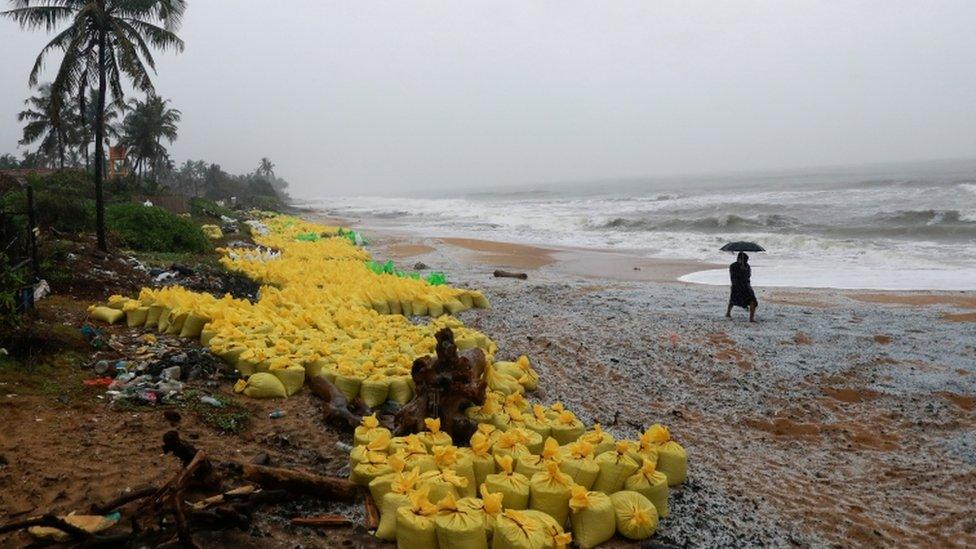
Large sacks filled with tiny plastic pellets have been filled
The shipping company that owns the X-Press Pearl has sought the help of the organisations International Tankers Owners Pollution Federation (ITOPF) and Oil Spill Response (OSR) to respond to the crisis.
They've been tasked with monitoring any oil spills which the Sri Lankan authorities believe could happen and and to help out with the clean up of the affected beaches.
Sri Lanka's coast conservation minister Nalaka Godahewa has said that five vessels which are equipped to deal with oil spills have been stationed around the sinking ship, but there have been no confirmed reports from the country of a leakage from the vessel so far.
Fishing banned
X-Press Pearl: Sinking ship serious environmental risk
Despite the efforts to clean up the damage caused by the fire on the X-Press Pearl, the impact is still huge.
The plastic from the ship covers a 50-mile stretch of beach which residents aren't currently able to go to and fishing in the area has also been banned.
The authorities believe the recent events may impact the country for for years to come, threatening marine life and the livelihood of fishermen and local communities.
Breeding grounds 'destroyed'
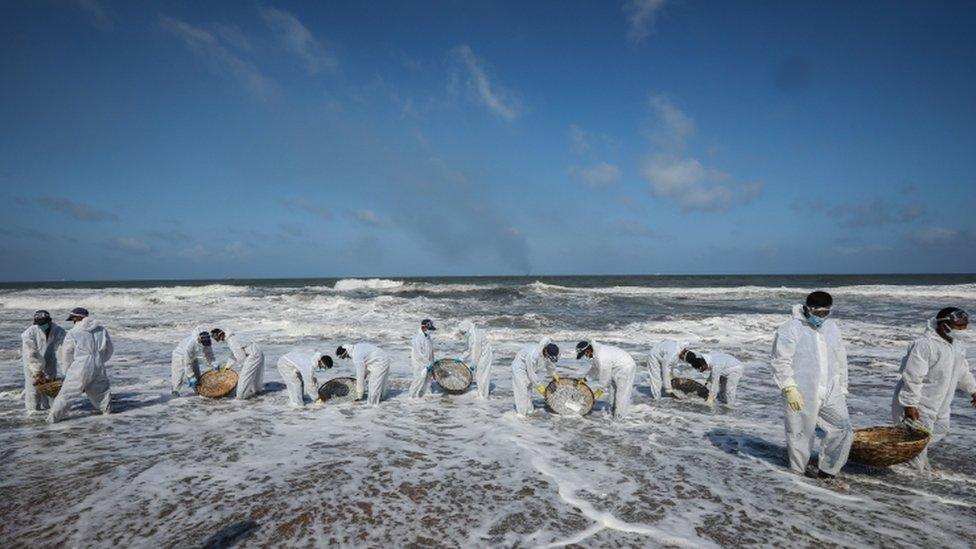
The plastic covers a 50 mile stretch of beach
"The fish are bred in the coral reefs in the area and authorities are saying that all those breeding grounds are destroyed due to the dangerous chemicals," says Tiuline Fernando, who's been a fisherman for the past 35 years.
"It's not only us," fisherman Densil Fernando told the BBC.
"There are other related industries that are also impacted by this. We buy nets and engines and boats, we need oil, there are people who pull the boats. There are thousands of other related jobs connected to this fishing industry."
- Published18 September 2020
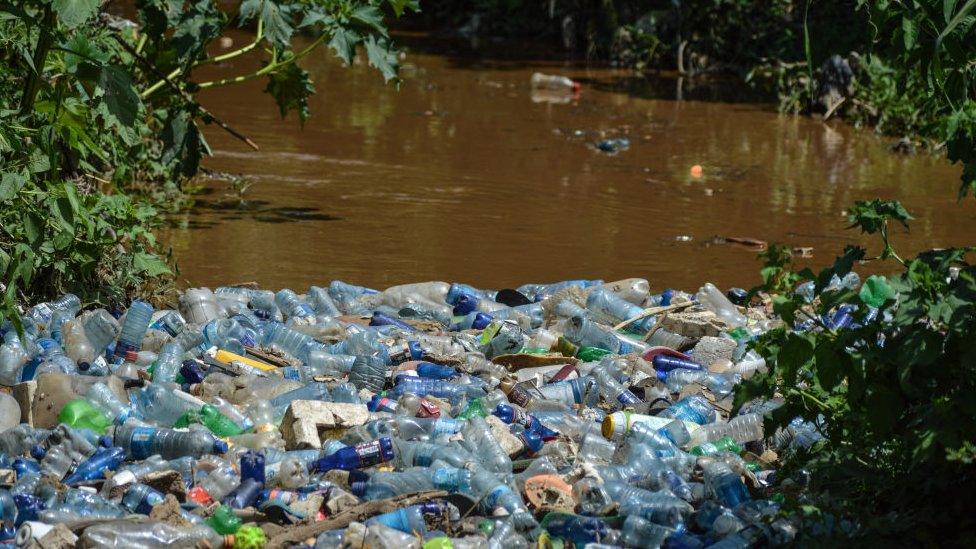
- Published3 June 2021
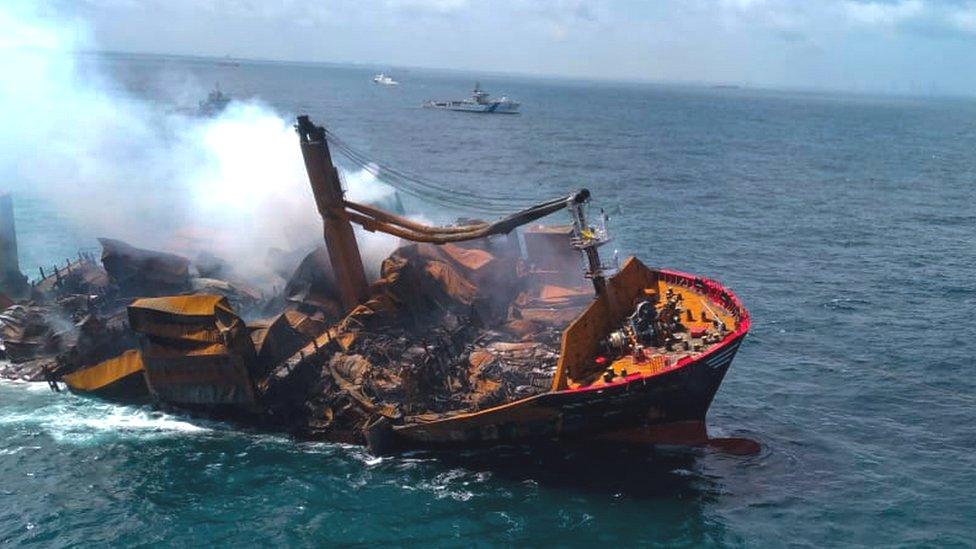
- Published11 August 2020
